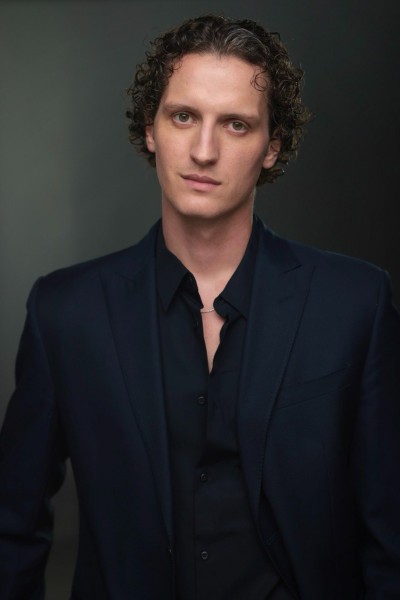International Education to Cultural Bridge-Building – How Global Training Programs Create Community Connectors

United States, 25th Nov 2025 – As international education programs continue to attract students from across the globe, a growing number of graduates are finding ways to maintain cultural connections while building professional lives in new countries. One such example is Anton Krasavin, whose educational journey from Eastern Europe through the United Kingdom to the United States illustrates how cross-continental training can create individuals who serve as cultural bridges in their adopted communities.
Krasavin’s path began with a Bachelor’s degree at the University of Surrey in the United Kingdom, followed by an MFA in Acting for Film from the New York Film Academy in Los Angeles. This combination of European and American educational experiences provided him with a unique perspective that blends different pedagogical approaches and cultural frameworks.
“The training systems are fundamentally different,” Krasavin explains. “European programs tend to emphasize classical technique and theoretical foundations, while American programs often focus on practical application and industry preparation. Having both perspectives creates a more complete understanding of the craft and the discipline required for professional work.”
The value of such international educational pathways extends beyond individual career development. Graduates often become connectors between communities, bringing cultural perspectives that enrich local arts and cultural scenes while maintaining ties to their heritage.
This cultural bridge-building was evident in Krasavin’s recent participation in Echo Lubimovka Los Angeles, a festival dedicated to contemporary Russian-language theatrical writing. The festival, which brings together Russian-speaking artists and audiences in Los Angeles, represents the kind of cultural preservation effort that relies on individuals who can navigate multiple cultural contexts.
“Events like Echo Lubimovka serve an important function,” Krasavin notes. “They create spaces where language, stories, and cultural memory can be preserved and shared, even thousands of miles from their origin. For many in the diaspora community, these cultural touchpoints are essential for maintaining identity while fully participating in American life.”
The festival showcases how international education creates professionals capable of operating in multiple cultural spheres. Participants often bring training and perspectives from their home countries while adapting to the cultural and professional norms of their adopted homes.
The International Education Pipeline
The pathway from international undergraduate education to specialized graduate training in the United States has become increasingly common. Students often seek the combination of different educational philosophies, believing that exposure to multiple systems creates more versatile professionals.
Universities in the United Kingdom, where Krasavin completed his undergraduate studies, typically emphasize independent research and theoretical grounding. American graduate programs, particularly in applied fields, tend to focus on practical skills and industry connections. This complementary approach can provide graduates with both conceptual depth and practical capability.
“The transition between educational systems requires significant adaptation,” Krasavin says. “Each system has its strengths, and learning to integrate different approaches develops flexibility and critical thinking that extends well beyond any specific profession.”
Cultural Preservation Through Community Engagement
For many international professionals, maintaining cultural connections becomes a form of community service. Russian-language cultural events, like Echo Lubimovka, depend on individuals willing to dedicate time and energy to preservation efforts alongside their professional commitments.
These cultural initiatives serve multiple purposes: they provide cultural continuity for diaspora communities, introduce American audiences to international artistic traditions, and create networking opportunities for professionals who share linguistic and cultural backgrounds.
“There’s a responsibility that comes with having access to multiple cultures and languages,” Krasavin reflects. “When you’ve had opportunities to study and work internationally, contributing back to cultural preservation efforts feels like a natural extension of that privilege.”
The Los Angeles area, with its diverse international population, provides particularly fertile ground for such cultural exchange. The city hosts numerous diaspora communities, each maintaining their own cultural traditions while contributing to the broader multicultural landscape.
Building Professional Networks Across Borders
International education creates networks that span continents. Graduates maintain connections with classmates, professors, and colleagues from multiple countries, creating professional relationships that cross cultural and geographic boundaries.
These networks become valuable resources not only for career development but also for cultural exchange and collaboration. They facilitate the kind of cross-cultural projects that enrich both professional work and community cultural life.
For professionals like Krasavin, who completed education in three different countries, these networks represent a form of social capital that enables cultural bridge-building. The ability to connect with communities across linguistic and cultural lines becomes both a professional asset and a means of contributing to cultural preservation.
The Broader Impact of International Training
The trend toward international education reflects a broader globalization of professional training. As industries become more internationally connected, professionals with cross-cultural competencies and multilingual abilities find themselves well-positioned to navigate complex, multicultural work environments.
Educational institutions increasingly recognize this value, developing programs that emphasize international perspectives and cultural competency alongside technical skills. The result is a generation of professionals equipped to work across cultural boundaries and contribute to diverse communities.
“International education isn’t just about acquiring skills,” Krasavin observes. “It’s about developing the ability to understand and appreciate different perspectives, to adapt to new environments, and to find ways to connect communities that might otherwise remain separate.”
As international education continues to produce graduates with cross-cultural competencies, the role these individuals play in connecting communities and preserving cultural traditions becomes increasingly significant. Their ability to navigate multiple cultural contexts while contributing professionally demonstrates the broader value of international educational pathways.
Company Details
Organization: Tabpro Solutions, Inc.
Contact Person: Yerbol Baimencheyev
Website: https://www.tabprosolutions.com/
Email: Send Email
Country: United States
Release Id: 25112537708
